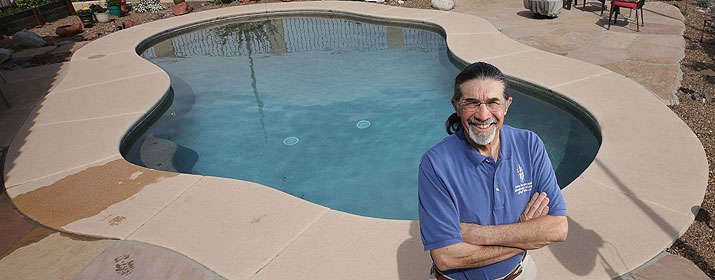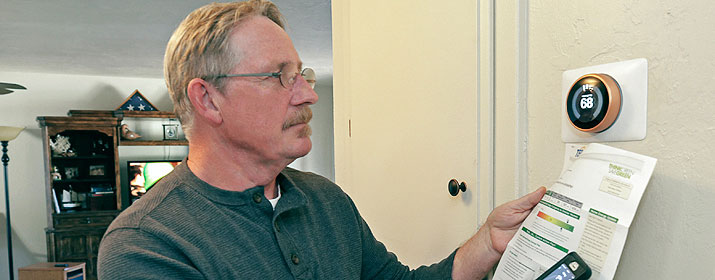
When Philip Saletta’s single-speed pool pump quit working last year, he knew he wanted to replace it with an ENERGY STAR® variable-speed model to save energy and money and help the environment.
“The pump failed last summer while I was out of town,” said Saletta, a retired water engineer and utility director. “A new pump is more expensive than getting the motor rebuilt, but the variable-speed pumps have about one-third of the noise level of single speed pumps and are so much more efficient.”
He contacted Leslie’s Pool Supplies, which happened to have the model he wanted on sale. Plus, Saletta received a $195 instant rebate from TEP to reduce his upfront cost even more. “The rebate really was an added value,” he said. “It’s great that TEP recognizes ways customers can reduce their electric consumption and their bills. It’s a win-win situation.”
Saletta said he’s noticed how much quieter his new pump is, and has seen a dip in his electric bills.
Pool pumps can be your home’s second-largest energy user – after heating and cooling system – and cost you up to $560 a year to operate. Standard pumps run at just one speed – high – even though filtration at a lower speed and flow is the most common use for the pump.
Certified pool pumps are up to 65 percent more efficient than standard pumps because they use advanced motors, hydraulic designs and variable-speed technology to deliver the right flow for water filtration, fountains or cleaning.
“Replacing your standard pump with a variable-speed model can save you hundreds of dollars a year in energy costs,” said Edith Garcia, Residential Energy Efficiency Program Manager, “and the payback period is less than two years.”
To claim the TEP rebate, purchase a qualifying pool pump from one of our qualified pool pump professionals and have them install it. Show one of your recent TEP bills to your pool professional, and they’ll deduct the rebate from the sales price.
Replacing an inefficient pump with a high efficiency model also is good for the environment. According to ENERGY STAR, if every pool pump in the U.S. was high efficiency, we could reduce greenhouse gas emissions equal to those produced by more than 1 million vehicles.






